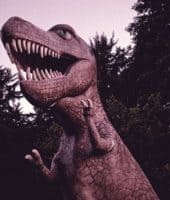Female representations in media have often been skewed; skewed by the men behind the scenes creating, directing and writing, and skewed by the audience that views them. From television to movies to video games, female viewers have been subjected to idealized, polished and downright fake portrayals of women and girls. As mentioned before, the issue is two-fold. The vast majority of mainstream creators are men. They control the writing rooms and they often control what’s shown on our televisions and silver screens. However, the creators and producers can hardly hold all the blame. Many would argue that they make these decisions (re: create these unattainable characters) because the audience demands them. If the majority of your target audience subscribes to ideals surrounding the male gaze, then certainly you’re going to create something that pleases them. Entertainment is a business after all. Despite females making up a part of that audience, their thoughts, feelings and even desires often go unnoticed.
With so little female input, the caricature of the “hot fantasy girl” was born. She’s pretty hard to kill.
But she’s saving the world! Don’t you feel empowered?
Take a look at female superheroes. We’ve got Black Widow, Wonder Woman and, most recently, Captain Marvel. On the surface, it’s pretty easy to look at them and see empowered, strong women fighting for the forces of good. And, for the most part, that’s exactly what you get from their movies (sort of… looking at you, Black Widow). However, each character portrayal has its own unique issue. Black Widow, the token female until Scarlet Witch shows up, is portrayed as a monster for being infertile. Infertility is a very real issue that many women struggle with, but is it really a director’s place, a male director’s place, to imply that a woman incapable of reproducing is less than human? When the character had an opportunity to offer support to those that might seek it, she was written to degrade herself and anyone else that might be living with the same situation. “Wonder Woman,” directed by a female, comes a long way with showing strong, positive female representation on the big screen. Diana is strong-willed, determined and isn’t keen to let a man tell her what to do. This character’s issue comes less from the 2017 movie and more from the original character design from the comics. Despite the undeniable badassery Diana possesses, her character design is strongly directed towards a male audience. Her skimpy outfit says, “Sure you can fight crime and save the world, but only if you look great in a miniskirt and can do it in heels.” Finally, Captain Marvel. The turbulence surrounding this character stems not from the actual portrayal, but the audience reaction to the character design. Comments about her unrevealing costume and lack of smile remind us that even a female-fronted movie will still be received by a predominately male audience.
But you can play as a girl! Surely that makes you feel more welcome!
More so than comics and movies, the myth of the “hot fantasy girl” thrives in the world of video games. Games like “World of Warcraft” and “League of Legends” are notorious for creating (traditionally) physically attractive female characters with unattainable proportions and infamous bikini-plate armor. On the whole, the video game community is extremely alienating towards women. Having their abilities doubted and being subjected to gender-based insults keeps a lot of women away from this form of entertainment, which ultimately makes it easier for developers to churn out sexist portrayals. Many mass online multiplayers and RPGs do allow the option of character selection and customization; giving females the opportunity to create a character that appeals to their tastes. But this doesn’t remove the other players that might ridicule women for only playing female characters or making their own explicit characters.
If this is hot, what are you?
The most damaging issue with the caricature of the “hot fantasy girl” is that it creates a specific expectation of what women should look like in the real world. If you don’t look like Lara Croft while hiking, why even bother, right? While so many of these female characters are toted as being empowering, they can also be damaging. Sure they’re strong, but they’re also a traditional, Westernized version of pretty. Look too closely, and you won’t walk out of the theater or away from your computer feeling empowered.
Media influences society’s beliefs, but it also bases itself off of what society already believes. The “hot fantasy girl” is simply the product of a vicious cycle that can only be stopped by both sides. More diverse creators will slowly reduce the number of damaging character portrayals, and a more diverse audience will slowly demand less offensive entertainment.





